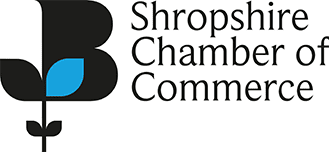The BCC is urging the government to give businesses much greater clarity on its roadmap out of lockdown as firms continue to suffer.
The business organisation, which represents tens of thousands of companies of all shapes and sizes across the UK, has written to the government seeking updates on a number of vital issues.
In particular, it says firms need to know how the government is assessing its four tests to determine if the roadmap will be followed. This includes providing regular updates on progress against the tests so that businesses can plan ahead.
Firms also need more detail on the practicalities of reopening and the government’s various reviews so they can make concrete plans on how they will operate – for example, what social distancing rules will be in place at each stage of the roadmap and beyond.
Companies are also looking to government for clarity on potential legal issues surrounding vaccinations.
Finally, businesses which operate across the UK need the government and devolved administrations to work together on synchronising their differing routes out of lockdown.
It follows a BCC survey of more than 1,000 firms at the end of January which revealed that many firms were struggling due to the continued COVID restrictions:
- 55 per cent of respondents say they are looking to access finance over the next twelve months. Of these, almost two out of three (63 per cent) are doing so to support their cashflow and only 28 per cent are doing so to invest in products, research and development, or equipment.
- A quarter (26 per cent) of firms describe their current level of debt as either ’unmanageable’ or ‘high and manageable’. This rises to 32 per cent for consumer-facing firms like hospitality and retail.
- Almost a third (32 per cent) of all respondents said they saw write offs relating to Covid-19 lockdowns or restrictions in the last twelve months.
Of the firms reporting write offs, the mean average approximate financial value of these write offs was just over £61k, while the median average was £5k.
O the 527 micro firms (businesses with less than 10 employees or sole traders) that responded to this question, 34 per cent of respondents said they saw write offs relating to Covid-19,lockdowns or restrictions in the last twelve months. The mean average approximate financial value of these write offs was £28.5k.
Commenting on the lack of roadmap clarity, Baroness Ruby McGregor-Smith, President of the BCC, said:
“The route back to a full reopening of the economy is still a long way off, with continued uncertainty about whether, and when, the roadmap steps will be met.
“Far too little has been revealed about how the Government is assessing its four tests on the roadmap for businesses to accurately judge whether it will happen as planned.
“The timescales for some firms to get ready are already short. Others will be holding out for decisions to be made around issues like international travel and tourism to finally give them hope for the future.
“The UK Government must also find a way to work much more closely with the devolved administrations in Wales, Scotland and Northern Ireland on a collective route out of lockdown. A lot of businesses operate across these borders, in both directions, which makes planning their restart even more complex.
“Many companies appear reluctant to invest, buy in new stock or make plans for how they will operate when so much is still unknown. They have built up huge levels of debt throughout a year of continued restrictions, seen their cashflow reduced to a trickle in some sectors, while others have been forced to absorb large write-offs due to sudden lockdowns.”
The Viewpoint of Businesses
Andrew Coggings, Managing Director of Goodwood Estate in West Sussex, said:
“For all three lockdowns, all food and beverage outlets across the Goodwood Estate have had to write off substantial amounts of drink.
“The most recent lockdown cost us far more money in getting rid of food and drink as compared to previous lockdowns.
“Across all of our various outlets at Goodwood, there is no doubt that it has cost us a minimum of £10,000 each time that we go into lockdown and at Christmas it was probably £15,000.”
Matthew Henderson, Product Development Manager at Beamish Museum in County Durham, said:
“The unpredictable nature of the pandemic has made it incredibly hard for stock management and has meant we’ve had to be very cautious with our buying.
“Throughout these difficult periods we have adapted our buying to buy smaller quantities more regularly – Christmas for instance we were buying weekly, where we would normally buy 6-8 weeks of stock in one go, it made it more challenging for lead in times, but we were determined to minimise wastage where possible.”
Joe Swiffen, company director of Mynydd Sleddog Adventures Ltd in Conwy, said:
“Planning for reopening has been difficult because we just have no idea when we will be able to reopen. The Welsh government has been making its announcements on a Friday and permitting some restrictions to be lifted the following day.
“This is a worry as we really need more notice in order to prepare for reopening. The Welsh Government is reviewing outdoor activities and attractions on 22nd April, but we are still not clear if we can open thereafter and whether travel across borders will even be permitted.I am unsure whether to advertise and promote my business or even who to target an advertising campaign to - England and Wales? Only Wales? I just don't know.
“I understand that the UK should cautiously reopen, and I do consider that to be the safest way, but it certainly adds to the stress and uncertainty when it's not clear where your business fits into the road map and when cross border travel might be considered.”












Latest News